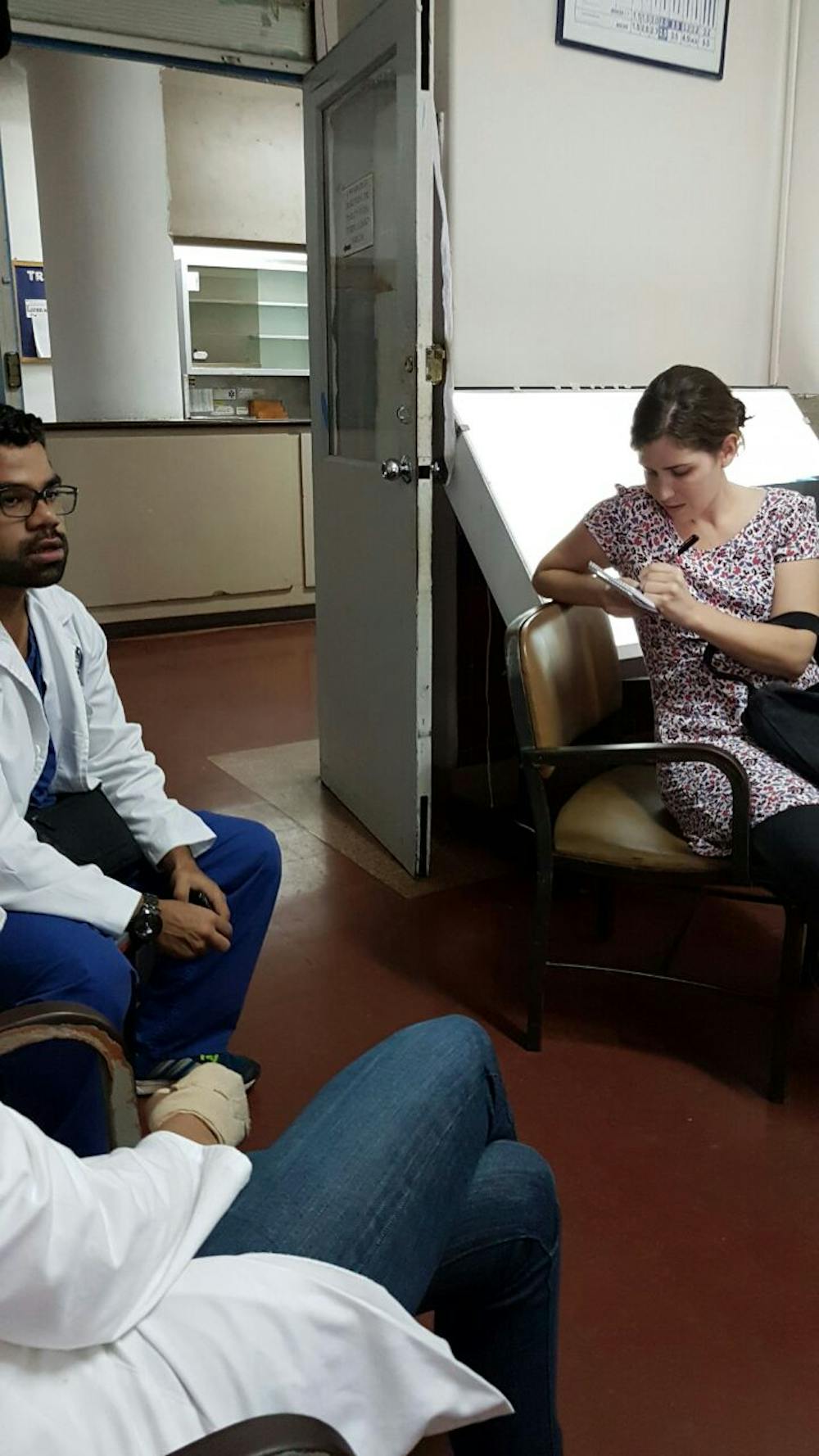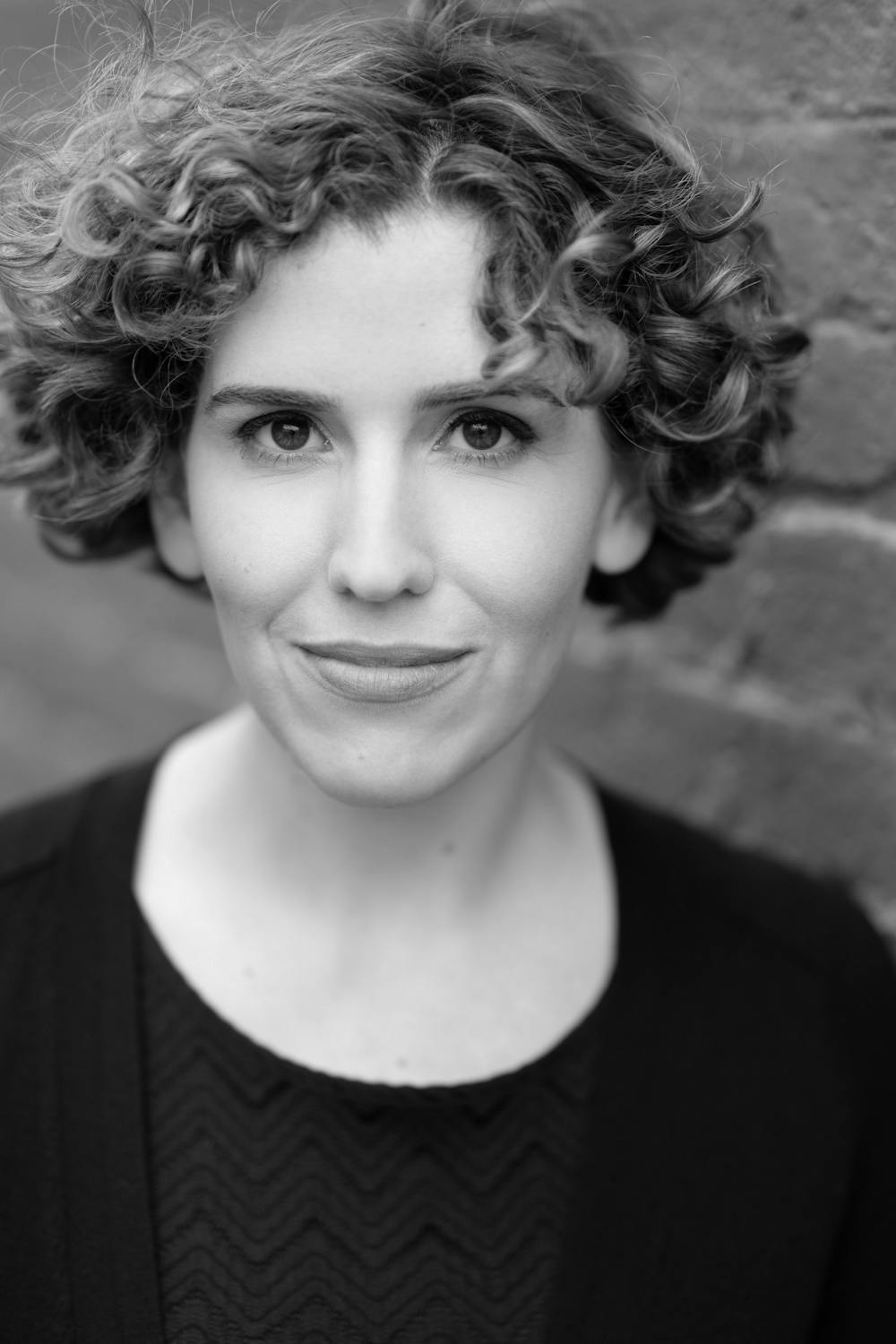Hannah Dreier never considered journalism as a career — she always liked reading and writing but thought she was going to do work as an activist after graduating from college.
“I had a combined major of history, philosophy and English,” Dreier said. “I’m so impressed by people who know in college that they want to be journalists and that they have the courage to do that. I was too shy.”
Dreier graduated from Wesleyan University in Connecticut in 2008 and began applying to as many places as she could before getting an internship at the Contra Costa Times in Walnut Creek, California, which is now the East Bay Times.
“I had a list of every newspaper in the country, and I went down one by one checking to see if they had internship programs,” Dreier said. “I just loved [the Contra Costa Times] immediately. It was a way better fit than what I thought I had wanted to do … it was really more of experiences in reporting and writing that made me want to keep doing it.”
Dreier said 2008 “was a really scary time to get into journalism” amid the Great Recession in the United States. At the time, one of Dreier’s neighbors was working in the field and told her how difficult it was to work during the recession. However, Dreier said she did whatever she could to get a paid internship and start her career off right.
Dreir was unsure if the Contra Costa Times had any open applications, so she decided to write to the publication and ask for herself. As it turned out, Dreier said, an internship was available.
For a year, Dreier interned with the-then Contra Costa Times, and she didn’t know what she was getting into when she began interning for the paper. However, she said she quickly fell in love with the work because of the stories she was able to tell.
“There was a lot of nepotism happening in the local political leadership, and a lot of political things happening that hadn’t gotten any news coverage because it’s a small town,” Dreier said. “I think they weren’t used to having someone dedicated to going to all their meetings and covering all of the random county board appointments. It felt really easy to make an impact.”
Dreier was hired as a full-time reporter for the paper after finishing her internship in January 2010. Once she finished working for the Contra Costa Times in 2012, Dreier was hired by the Associated Press to cover California politics out of Sacramento.
“It was so fun,” Dreier said. “It was a really different pace because I had this job at a newspaper where I was covering towns all by myself and doing whatever struck my fancy. And then, at The Associated Press, it’s a newswire and you are working in the capital.”

Hannah Dreier interviews doctors in a Venezuela state hospital in 2016 while she was working for the Associated Press. Dreier said she had to "semi-hide" behind a door because reporters were not allowed in the hospital without official persmission. Hannah Dreier, Photo Provided
While working for AP, Dreier had to learn how to publish stories and get them out there as soon as she could, which is not what she was used to with her previous job. Dreier said she remembers one time, in her first week, where her boss assigned a story to her and made her send the first draft to him within 10 minutes.
Once the clock got to minute eight, Dreier’s boss sat by her desk and watched her create the story. Once the 10 minutes were up, he had her come up with an update for the story 16 minutes later, and the whole process started over again.
“It teaches you how to file really quickly and accurately and not get too hung up on the other parts of it,” Dreier said. “And that’s a valuable skill I think that [AP continues] to draw on in different ways.”
Dreier said working for AP allowed her to have a “low-profile job” and only focus on filing stories quickly, so no one was counting on her to do more of the larger political reporting that came out of California.
“Working in Sacramento, I felt like you could just sort of scratch the surface of any topic and you would find some sort of outrageous, corrupt, explosive story,” Dreier said.
One of these stories was about a specialty license plate program California had in honor of 9/11 victims, where people could buy license plates and the money would be given to orphans who lost their parents in the tragedy to help pay for their college tuition.
“It turned out, when I started to look into it, that almost nobody had gotten those college scholarships that the program was supposed to fund, and instead, the governor had taken that money and used it to fill a budget hole,” Dreier said. “I think that was really my first taste digging into something sort of random and being able to do a story that created change in the real world.”
Dreier’s success with the AP didn’t stop in California, and she traveled to Venezuela in March 2014 to work there for three and a half years. She said she didn’t know much about the country at the time, but she happened to move at a key point in its history.
“It was going from a really prosperous country with all the largest oil reserves in the world to the poorest country in all of Latin America and one of the poorest in the world,” Dreier said. “It was really amazing to cover that decline.”
After working for the AP, Dreier worked for ProPublica, a nonprofit organization based out of New York City that specializes in investigative reporting. While working for ProPublica, Dreier won a Pulitzer Prize in 2019 for her work covering the gang MS13, which was killing young Latino immigrants without much police resistance.

Washington Post Reporter Hannah Dreier attends a press conference in Venezuela with President Nicolas Maduro in 2015 while she was working with the Associated Press. Dreier spent three and a half years in Venezuela, working as a correspondent for the Associated Press. Hannah Dreier, Photo Provided
Dreier’s story for ProPublica shared many similarities with the one she wrote for the Washington Post, “The Worst-Case Scenario.” Dreier began working for the Washington Post in 2019, and has been a member of their emerging journalism team, which means she gets to be “a fly on the wall” of her stories. As a member of the team, Dreier is responsible for looking for stories in various parts of the country and writing about the ones that seem to not get as much attention.
“Almost all the stories I have done have involved going out to someplace and living life with the person that I’m writing about,” Dreier said.
“The Worst-Case Scenario” highlights police shootings during mental health crisis calls in Huntsville, Alabama, and won the 2021 Ball State School of Journalism and Strategic Communication National Writing Award.
According to Ball State’s website, since 1961, Ball State’s School of Journalism and Strategic Communication has recognized writers who provide excellence in journalistic storytelling. Recipients of the award receive a prize of $1,500 for providing a body of distinguished work published by a newspaper, magazine or digital news site that sheds light on significant and complex subjects, demonstrates a mastery of the topic and reveals exceptional writing.
Natalee Seely, assistant professor in the School of Journalism and Strategic Communication, has been the award director since 2018. Seely is part of a preliminary group of judges who look at 20-25 stories submitted and narrow it down to four. Another panel of judges will then look at those four stories and rate which ones they like best.
“[Dreier’s] piece was very immersive, so when you read it, you really got the feeling that she was sort of a fly on the wall, if you will,” Seely said. “This whole story made you really feel like you were there with her — she sort of made herself invisible. She became this narrator and provided wonderful narration context to the characters, and really allowed readers to immerse themselves in the story like she did.”
Richard Jensen was one of the judges who chose Dreier’s story as the winner of the competition. Jensen spent most of his career working for the Gannett Company until he retired in 2009. This was his first year judging the Ball State National Writing Awards.
“I loved it — it was great,” Jensen said. “All four stories were excellent, so it was good summer reading.”
Each judge graded the stories individually and sent the story back to Ball State with a number grade to select which one they liked most. Jensen said out of all four stories, Dreier’s stood out to him as the best because she “produced a powerful, well-written story” that he thought brought a complex national issue to life.
“What was really effective is that her writing was really powerful,” Jensen said. “She effectively wove a big picture look at the issue. Her narrative storytelling was really powerful, and consequently, I thought the story gave readers a greater understanding of this complex issue.”
For Dreier, she said the best part of her piece, “The Worst Case Scenario,” has been the feedback she has received from readers.
“I’ve gotten a lot of messages from police training academies and people who are training to be social workers or other kinds of law enforcement workers,” Dreier said. “It’s also been nice to hear from readers who talked about how it changed their mind on this issue or helped them see this issue in a new light.”
Dreier also said it has been “really exciting” for her to talk with Ball State students about her piece and receiving this year’s School of Journalism and Strategic Communication National Writing Award.
“It’s really inspiring and energizing for me to know that there are people who are thinking deeply about these things so early in their careers,” Dreier said. “I was definitely not grappling with these issues at 20 years old, so that’s a really wonderful thing that makes me happy.”
Contact Maya Wilkins with comments at mrwilkins@bsu.edu or on Twitter @mayawilkinss.





